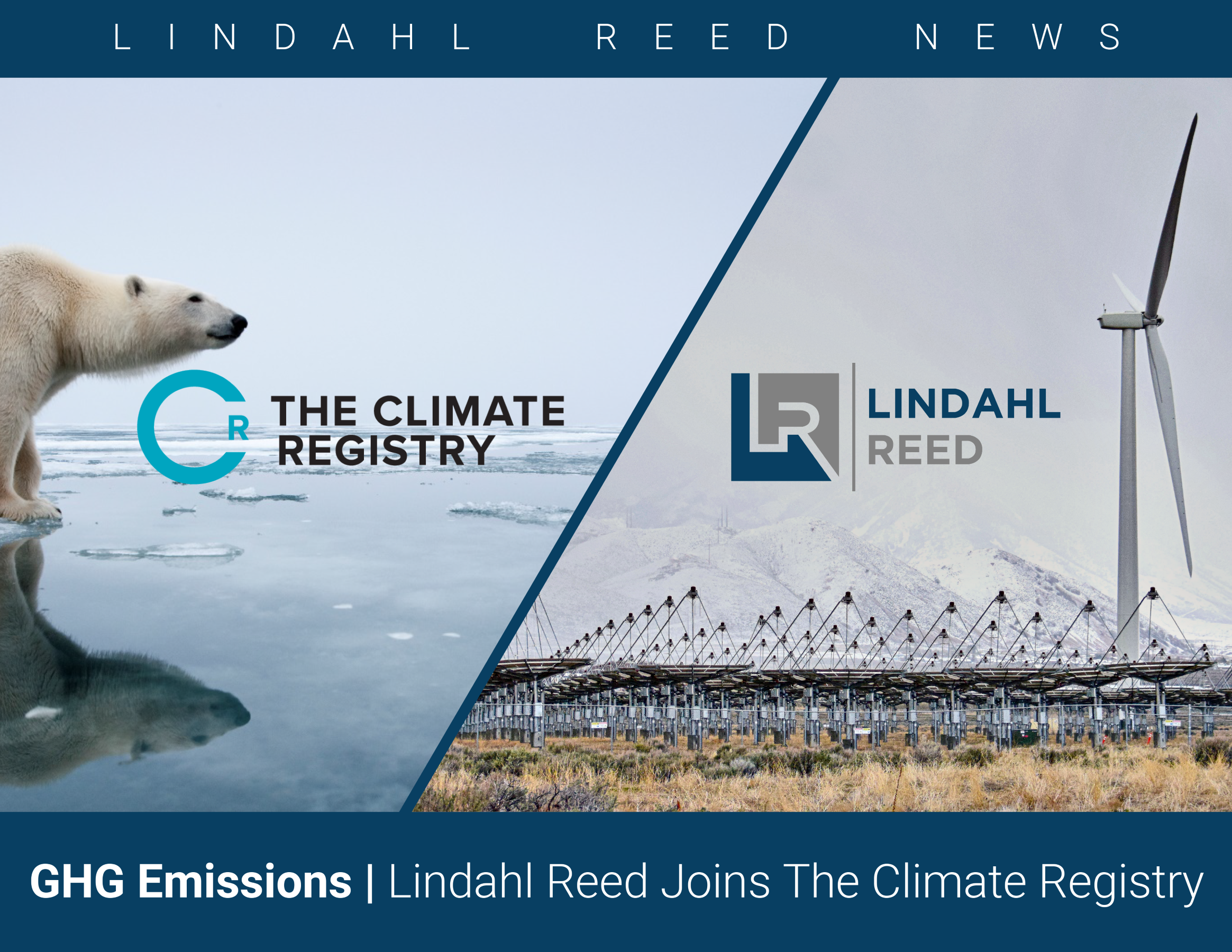 As part of Lindahl Reed’s broader Corporate Social Responsibility Program, we are implementing a company-wide GHG emission reduction plan, to best align our values with our impact. The plan is dually focused on: (1) supporting employees to reduce GHG emissions at home, and (2) reaching net zero GHG emissions for all our operations.
As part of Lindahl Reed’s broader Corporate Social Responsibility Program, we are implementing a company-wide GHG emission reduction plan, to best align our values with our impact. The plan is dually focused on: (1) supporting employees to reduce GHG emissions at home, and (2) reaching net zero GHG emissions for all our operations.
To reach our goals, Lindahl Reed is a member of The Climate Registry (TCR) – joining other public and private sector corporations working to lower their carbon emissions and take action on climate change. We will register and publish our organizational carbon footprint through TCR’s Carbon Footprint Registry. As a member of The Climate Registry, Lindahl Reed will gain access to technical support and software for company-wide GHG emission accounting. Lindahl Reed commits to voluntarily reporting and verification of our annual carbon footprint, engaging in target emissions reductions opportunities, and benchmarking carbon management performance. Using our carbon footprint, Lindahl Reed will continue to set future annual emissions reduction targets toward our goal of achieving net zero.
“Our membership with The Climate Registry demonstrates Lindahl Reed’s ongoing commitment to aligning our Corporate Social Responsibility goals with our core principles of advancing a healthier, more sustainable world,” said Lindahl Reed’s President and Chief Executive Officer, Nicole Hough. Lindahl Reed believes its membership with TCR is a critical step in our company’s aim to lessen the environmental impact of our operations.
Lindahl Reed is an SBA certified 8(a) participant, SDB, WOSB, and EDWOSB that provides program management, scientific and technical, and management advisory services to federal, state, institutional, and commercial customers. We offer expertise in the health, energy, and environmental markets. Lindahl Reed was founded on the belief that we can advance a safer, healthier, and more resilient and sustainable world. Our solutions keep our homeland secure, make our communities healthier, increase energy resilience, and help to protect our environment.




